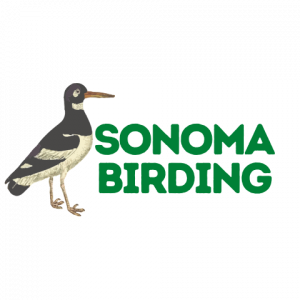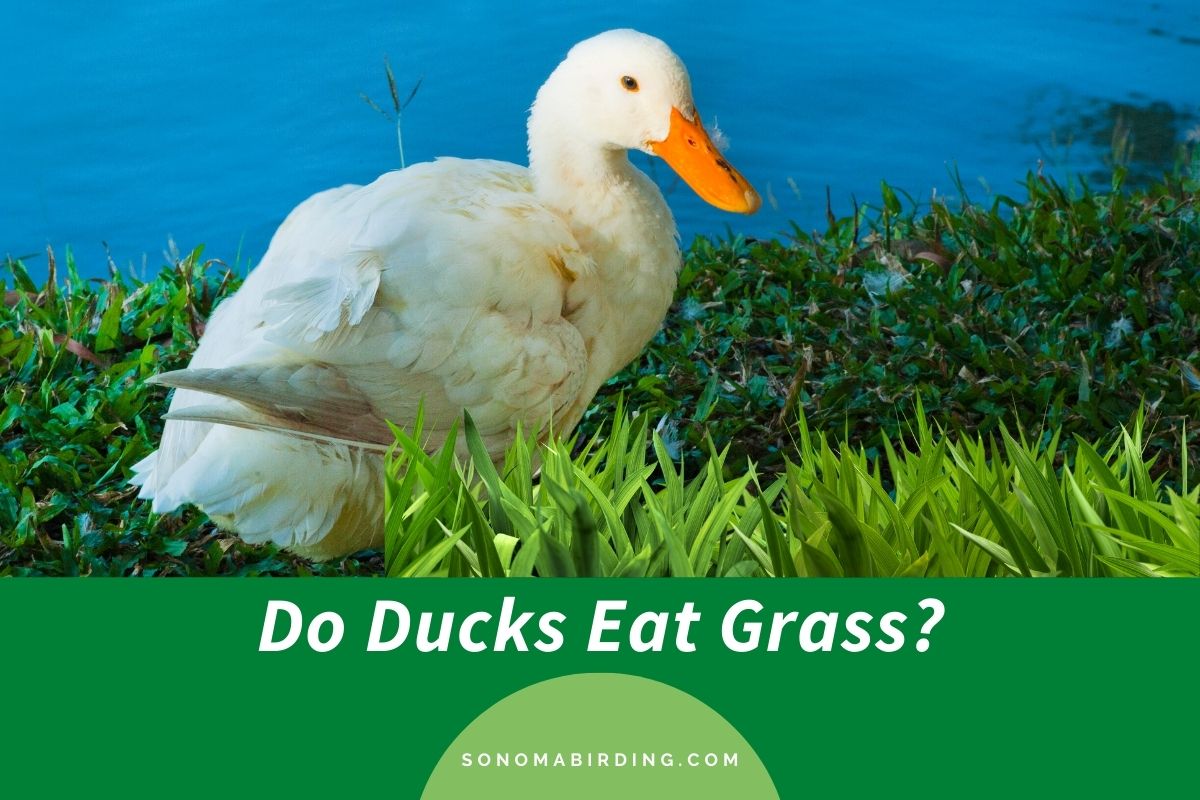Grass has been food to different livestock animals such as cows, buffaloes, and goats. In fact, these animals are categorized as “ruminants” solely because they can easily digest grass and benefit from the nutrients present in it.
But while any grass seems like an ideal choice for these animals, what about birds? Can they eat grass safely as well? If you’re a pet parent to a chicken or a duck, would you ever consider feeding your pets grass? That’s what we’re about to find out.
Do ducks eat grass? Yes, they do. Being omnivores, almost all plant-based foods are safe for ducks’ consumption; the grass is no exception to it. In the wild, the grass is often a major part of their diet. Ducks are capable of digesting the cellulose in grass and can also absorb all the nutrients present in it. However, you must feed grass to your birds in moderation if you don’t want them to suffer from crop impaction.
In this article, we will talk about everything you need to know before feeding grass to your ducks, including its nutritional composition, health benefits, and more.
Can ducks eat grass?
Before we move on to talking about how grass impacts the health of ducks, let’s first learn how these birds can digest grass. As you might know, humans are incapable of digesting grass properly due to the presence of cellulose in it.
And if we can’t do it, how have your feathered friends achieved it? Well, the caeca help them do it. These organs look like worms extended from the large intestine of ducks and have two basic functions:
- They promote the absorption of proteins and water in their body.
- They digest both fibers and cellulose.
To sum it up, ducks can eat grass safely because the cellulose in it poses no threat to them, unlike us.
Does grass hold any nutritional value for ducks?
Animals like cows and buffaloes are dependent on grass for their primary nutrition, which means it must have health benefits for them. However, when it comes to your feathered friends, it is understandable to be concerned about the effect of these foods on them.
To allay your concerns, we are here to explain how grass can benefit the ducks. But first, we’ve compiled a table that shows the nutritional constituents of grass. Take a look:
| Bermudagrass | Ryegrass-wheat | |||
|---|---|---|---|---|
| Constituents | Coarsely chopped | Ground & pelleted | Coarsely chopped | Ground & pelleted |
| Ash | 68 g | 65 g | 80 g | 82 g |
| Crude Protein | 86 g | 81 g | 113 g | 119 g |
| Energy | 16.6 MJ | 16.7 MJ | 16.9 MJ | 17.6 MJ |
| Neutral- detergent fibre | 710 g | 688 g | 654 g | 672 g |
| Acid detergent fibre | 326 g | 303 g | 356 g | 342 g |
| Acid detergent lignin | 61 g | 54 g | 47 g | 44 g |
| Cellulose | 263 g | 247 g | 307 g | 294 g |
| Hemi- cellulose | 384 g | 385 g | 298 g | 330 g |
| Acid detergent fibre- N | 115 g | 158 g | 57 g | 150 g |
| Soluble N | 653 g | 580 g | 571 g | 535 g |
| Insoluble available N | 232 g | 262 g | 382 g | 315 g |
Now that we’ve learned about grass’s nutritional composition, let’s delve deeper into how these nutrients might benefit your pets.
The grass is classified based on its moisture and dry substance. 100kg of grass includes roughly 83kg of water. The dry matter, on the other hand, contains many nutrients that the ducks require, including sugar, oil, fiber, and mineral deposits.
Fiber
Grass fiber concentration ranges from 35% in greenery freshly picked grass to 50% in stemmy grass. As a result, grazed grass includes more than enough fiber to maintain your duck’s gastrointestinal system flow efficiently.
Protein
Protein content in grass varies from 16 to 18%, depending on the growth stage, fertilizer regime, and time of year. In periods of drought, the protein levels in the grass can fall as low as 11%.
As the feathers of ducks are made of 90% protein, this nutrient aids their molting and promotes a faster regrowth of their feathers.
Vitamins and Minerals
The mineral composition of grazed grass can be classified as major components, which include:
- Calcium
- Phosphorus
- Magnesium
- Sodium
- Manganese
- Zinc
Manganese, phosphorus, and calcium all contribute to the development of ducks’ strong bones and tendons, and ligaments. Manganese deficiency can also result in slid tendons and straightening of the hock joint in ducklings.
Vitamin C is another essential micronutrient present in grass. The lack of this vitamin in laying ducks can result in slender or shell-less eggs that can easily be penetrated by bacteria.
All these pointers establish the fact that grass has an abundance of nutrients to offer the ducks. So, does this mean you should use grass to replace everything else they eat? We’ll come to that in the next section.
How much grass is too much for the ducks?
When ducks face a scarcity of food in the wild, they will usually eat a lot of grass to cover up for it. It is acceptable for your ducks to eat grass on a daily basis as well, just as long as their diet is supplemented with other foods and nutrients.
But if you’re planning on feeding your ducks nothing other than grass, be warned in advance that it isn’t a good idea.
Surviving solely on grass can be challenging to their crop health and might even lead to health issues like Crop Impaction or Sour Crop. However, these problems usually occur only when they’re eating hard or stringy grass.
For the good health of your pets, their crop should be rich by evening and vacant by morning. If this is not the case, you must discover a reason to clear it, as this could cause major discomfort to the ducks.
What types of grass can ducks eat?
When you feed your ducks grass, would you simply let them forage on your backyard’s grass, or do you have to be more careful about it? Can ducks eat all grass types?
Ducks will eat any type of grass as long as it is delicate enough even for their beaks to break into. However, feeding them dry stalks and grass is not a good idea because it can get stuck in their throat and cause choking.
Grasses such as rye and wheat are safe to feed to ducks as long as they are green and growing in the duck pond. These grasses are also rich in plenty of nutrients, such as fibers, proteins, energy, carotenoids, and Omega 3 fatty acids.
Forages are significantly rich in vitamins A, B6, C, E, and K, which sums up the requirements of the ducks since they can easily get vitamin D from the sunlight.
Here are some safe plants for your ducks:
- Purple Deadnettle
- Yarrow
- Dandelion
- Clover
- Catsear
- Fat Hen
- Hawkweed
- Nettles
- Mugwort
- Plantain
- Chickweed
- Beautyberry
- Bee Balm
- Purslane
- Shotweed
- Violet
- Bitter Cress
Some types of plants that are lethal to ducks:
- Azalea
- Rhododendron
- Foxglove
- Castor Beans
- Irises
- Oleander
- Black Nightshade
- Buttercup
- Henbane
- Privet
- Trumpet Vine
- Clematis
- Vetch
- St. John’s Wort
- Sweet Pea
- Honeysuckle
Can domestic ducks eat grass?
Most people tend to think that there’s a monumental difference between the diet of domestic and wild birds. And while that might be true, it’s more due to the food availability in their surroundings than their capabilities.
So, can domestic ducks eat grass? As long as the grass is fresh and free from any chemical compound, it is completely safe for the consumption of domestic ducks.
Ducks in the wild are accustomed to feeding themselves and, as a result, have no difficulty feeding on grass. The ones you keep at home might not be used to eating grass, so you must provide it to them if you want them to get the nutrients from it.
Green, leafy veggies are an essential part of a duck’s diet, as you already know. But if your feathered pets have reached adulthood without ever tasting grass, they might be picky about eating it. Therefore, it’s best to start feeding them weeds and grass slightly earlier in life so that they can be used to it.
Also, because ducks will not feed on shriveled greens, you should place them in their pools of water or water containers. This way, the grass will be cool and fresh instead of drying out.
Can ducks eat mowed grass?
While fresh grass can be consumed by ducks, what about mowed grass? Will they eat it, too? Yes, they will, as long as it is fresh and wholesome.
If you want to feed mowed grass to your pets, put some debris in a bucket after cutting the grass on your lawn, and let them feed on it. Your ducks are more likely to enjoy these treats in the summer months. Just make sure the grass hasn’t gone dry and straggly.
Sometimes, mowed grass might also comprise harsh chemicals, particularly if they’re from an unknown source. These chemicals could harm your duck’s health, which is why you should only feed them mowed grass from your own lawn.
Do ducks eat hay?
Hay is basically a dried form of grass that is preserved to be used as fodder for the livestock animals. If you’re wondering if your ducks can also eat it, you’re right; ducks can eat hay. Despite its bland and dry look, it contains nutrients that are helpful for ducks.
However, it is important to note that if the hay stems are too long, they can induce plant binding in your duck, preventing food from exiting their bodies.
Another disadvantage of hay is that it loses nutritious value as soon as it is trimmed and starts to dry in storage. So, if you’re going to feed your ducks hay, consider alfalfa, as it is higher in nutrients like protein, calcium, and calories than grass hay.
Do ducks eat weed?
You might’ve noticed how eager ducks are to eat leafy greens and weeds that grow outdoors. Weeds, particularly the green ones, are full of nutrients and mineral deposits, which can enhance their health considerably.
So, if you have ducks as pets, you can also get leafy greens and weeds to feed them as part of a balanced diet.
What about ducklings? Can they eat grass?
While grass is not harmful to your little ducklings, it isn’t included on the list of healthy foods for them. Wondering why? Let’s find out.
During the initial stages of a duck’s life, a diet rich in all vital nutrients is critical. If a duckling does not get adequate nutrients, they might develop physical problems that are difficult to correct as an adult.
As a result, it’d be best if their diet contains about 80% of constructed starter/grower feed until they grow older.
Conclusion: Do ducks eat grass?
Let’s revisit our initial question: do ducks eat grass? Yes, they do. Both wild and domestic ducks can eat grass, which is why you can feed them to your feathered pets, too, as long as you stick to some safety measures.
However, too much grass in their diet could lead to crop impaction in their bodies. Therefore, you should feed them these treats in strict moderation.

